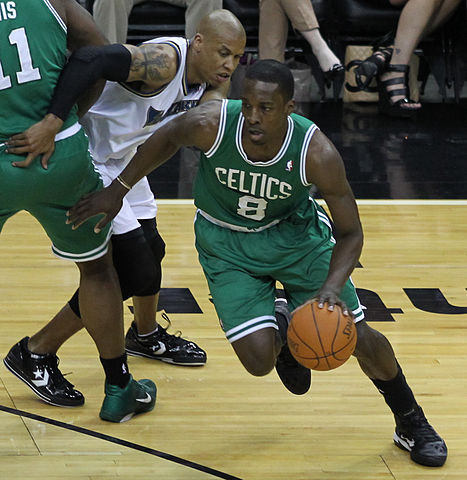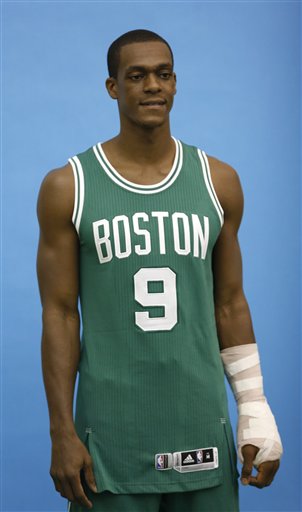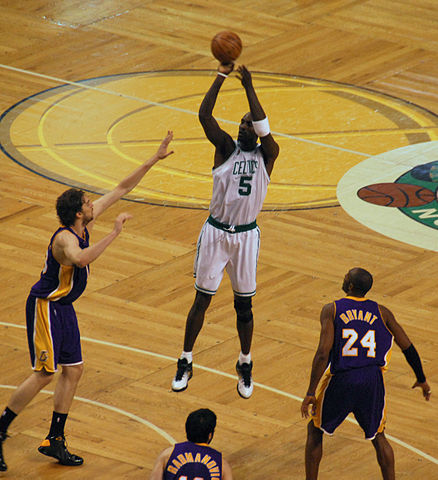The science is in: we love to root for the underdog. When we accomplish anything that not many people thought we could pull off, it makes us much giddier than if success was expected by most. How else do you explain Rocky V earning $120 a million at the box office and Buster Douglas getting his own video game? People have literally built careers and fortunes from one improbable victory.
New England’s own Bernie Sanders and the Boston Celtics are no strangers to the underdog role. Interestingly, Sanders’ bid for the presidency is peculiarly homologous to the Celtics’ surprising run to the seventh game of the Eastern Conference Finals in the 2012 NBA Playoffs. Now that the Independent Senator from Vermont conceded defeat and suspended his campaign, let’s take a look at some of those similarities.

Both Sanders and the Celtics ran into imposing juggernauts of their respective fields. Hillary Clinton — a former Secretary of State, former Senator from New York, the First Lady during the 1990s economic boom, a millionaire several times over, and one of the most famous people in the world — was being talked about as the presumptive Democratic nominee long before the Sanders campaign was even a concept. A CNN poll taken a month after Bernie announced his candidacy showed just how far behind he was in the beginning: he polled at 10 percent — a far cry from Clinton’s 60 percent, and even Vice President Joe Biden’s 14 percent. As we all know, Biden never even entered the race!
The Celtics’ situation wasn’t much better. Heart conditions cost key bench players Jeff Green and Chris Wilcox their seasons, and former All-Star Jermaine O’Neal and impactful second-year man Avery Bradley also suffered season-ending injuries. As if their decimated roster weren’t enough, they had to get through “The Heatles,” an impossibly stacked “super team” that boasted three of the top five picks of the historically great 2003 NBA Draft: a three-time MVP universally recognized as the best basketball player of his generation (LeBron James), the 2006 Finals MVP and 2009 scoring leader (Dwyane Wade), and a 27 year-old seven-time All-Star (Chris Bosh).

It should come as no surprise that pundits didn’t give the New Englanders much of a chance. The New York Times politely called the Sanders campaign a “long shot,” and some media outlets even went as far as declaring his candidacy “symbolic.” Just as basketball analysts thought the Celtics would be lucky to win a game or two against the Heat, political analyst Noam Chomsky opined that Sanders’ most likely triumphs would be to “press the Dems a little in a progressive direction” and to become “a thorn in the side of the Clinton machine.”
If they were truly that hopeless, why did so many people support them? Perhaps the major differences between them and their opponents made them more relatable to the average person. Hillary and the Heat were respectively derided as “corporate” and “Hollywood,” while Bernie was hailed as a populist who genuinely cared about working people and the Celtics as an unselfish, hard-working team that stayed away from the limelight. The feeling that they might have been operating within the confines of a rigged system determined to see them lose could have also created sympathizers. Remember how the Wyoming, New York, and California primaries provoked the ire of Berners everywhere? How about the alleged favoritism of the officials in the Heat-Celtics series? Not even Rocky had to deal with that kind of adversity.
Despite their comparable uphill battles, the most significant parallels between #Bernie2016 and the 2012 Celtics were their results. A team whose first two scoring options were a 36-year-old with a balky right knee and a fourteen-year veteran with a sprained MCL had no business beating LeBron and D-Wade three times in a row. Similarly, no one could have envisioned a self-identified socialist winning 22 states in a United States presidential primary.
The Celtics inspired aging weekend warriors everywhere to confidently challenge cocky young ballers and Sanders emboldened American youth to participate in the political process like no other candidate before him. Even if you’re not the biggest hoop head or political junkie, only good things can come from following the precedent set forth by Bernie and the Celtics!









